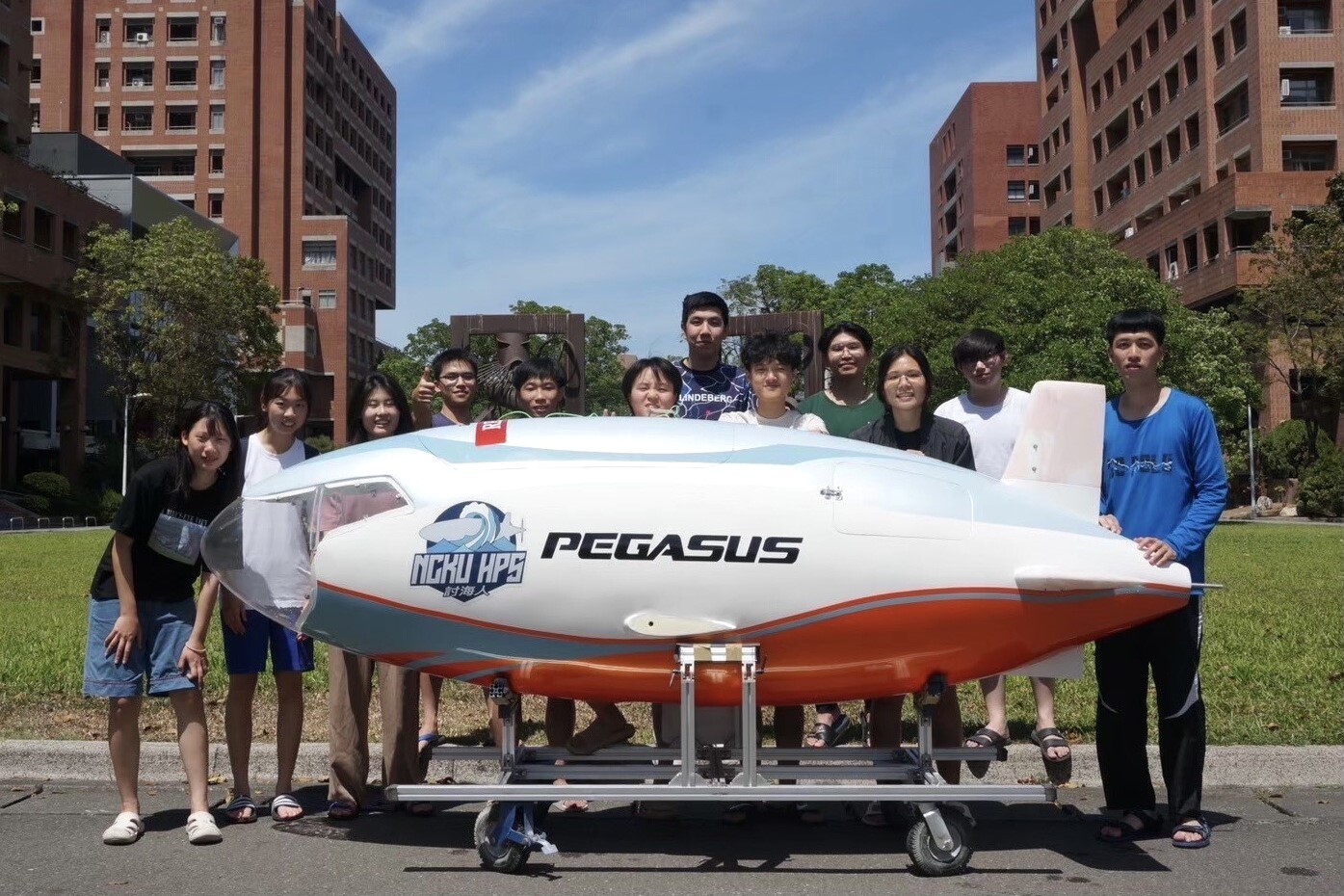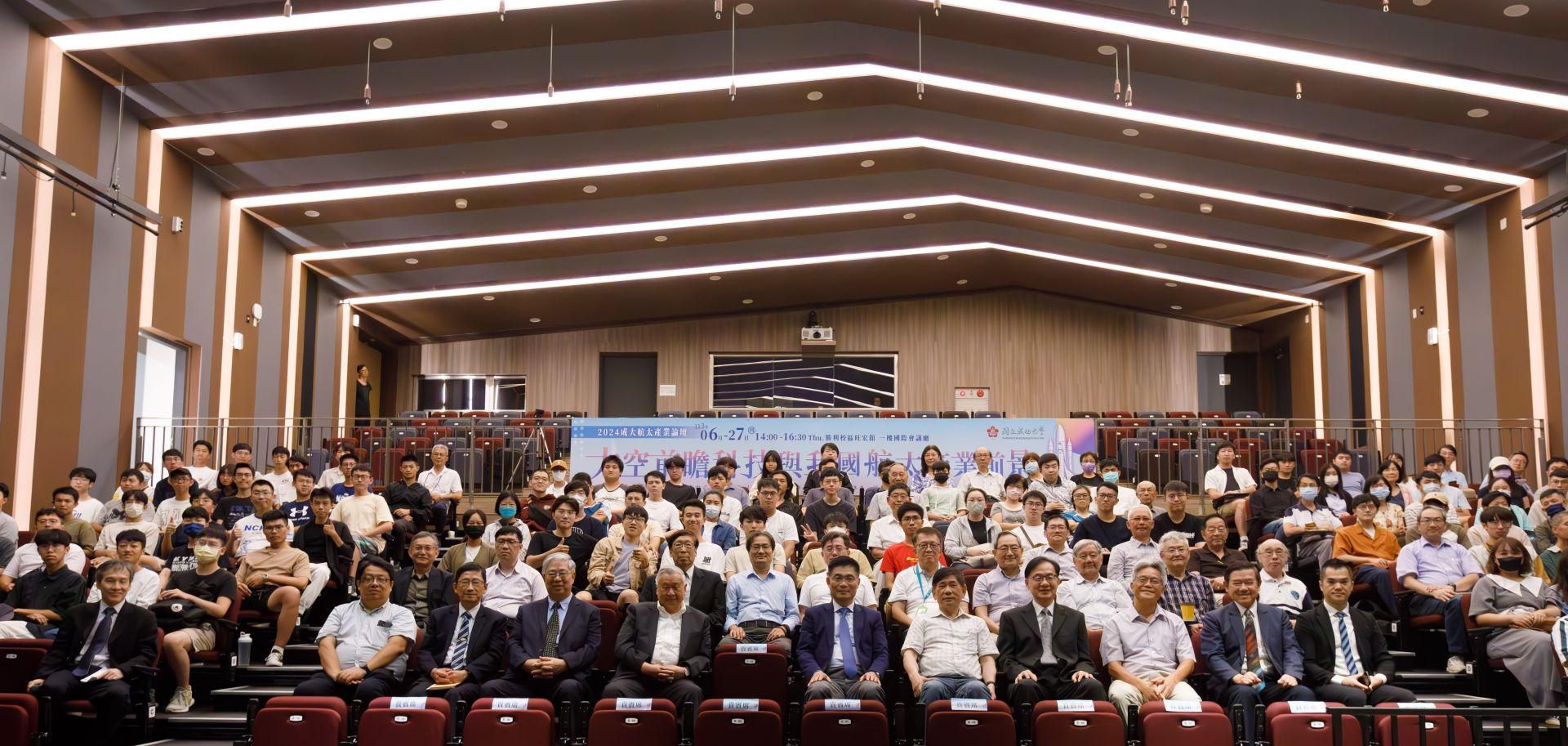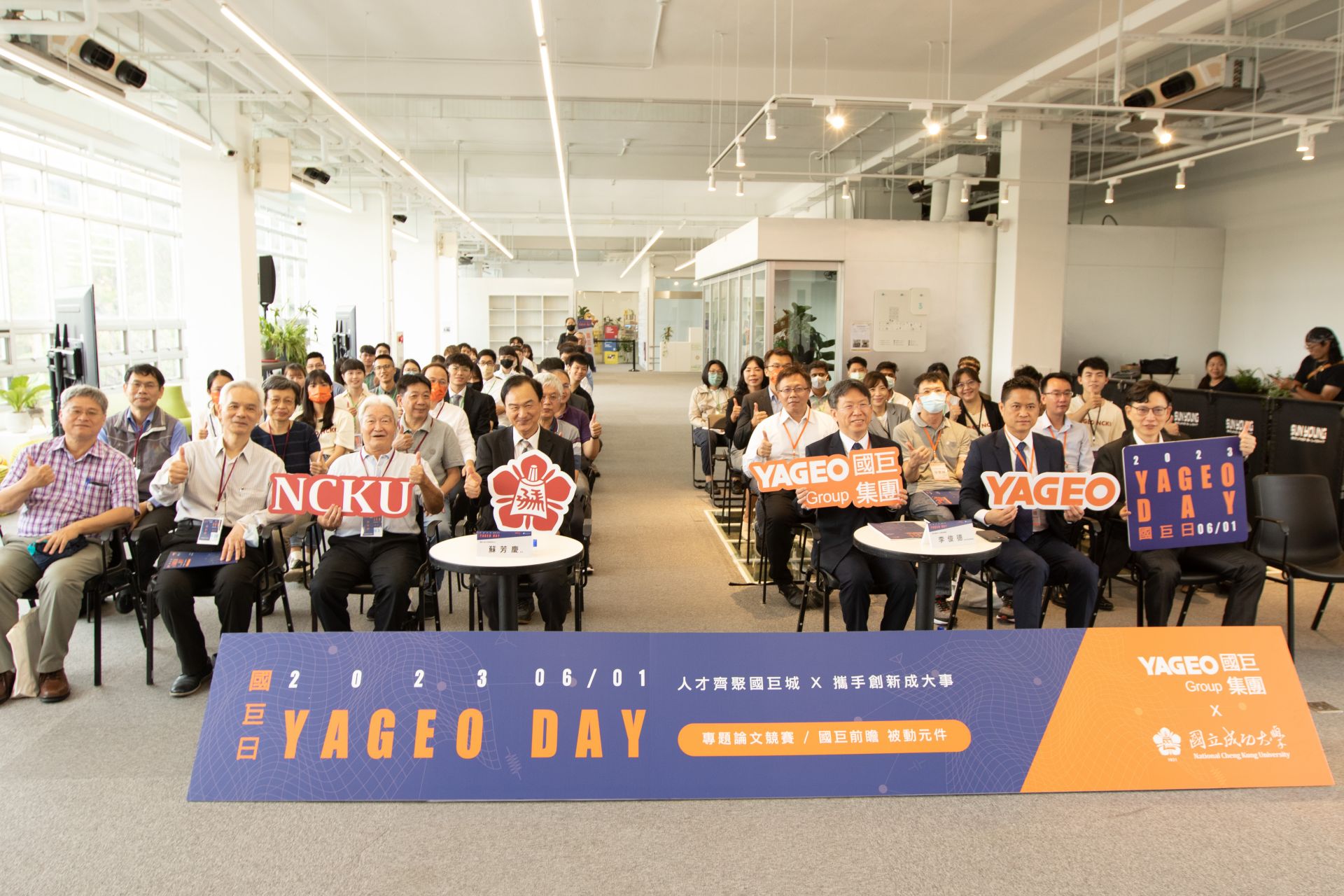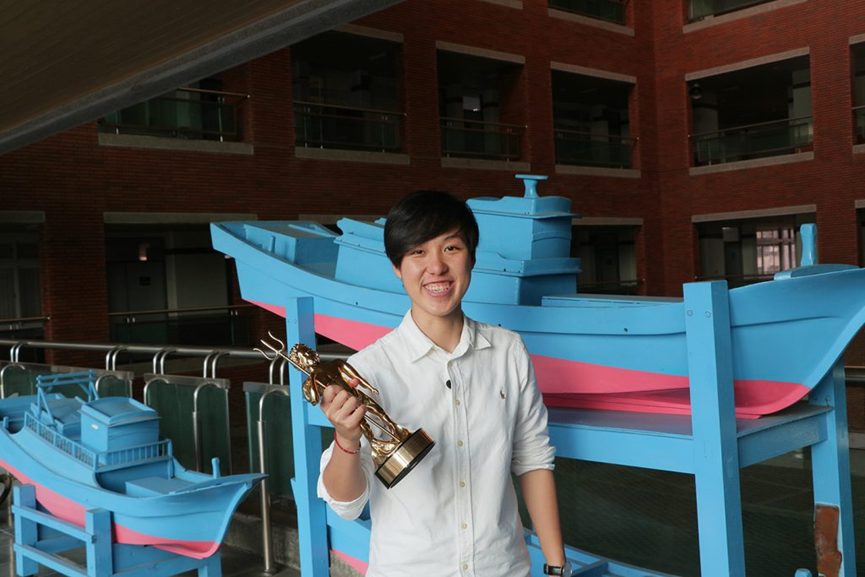SDG9
NCKU's Self-Built Submarine "Pegasus" Clears Underwater Tests, Sets Sights on European Competition
NCKU's student-led human powered submarine team, "Deep Sea Voyager'' will participate in the European International Submarine Races 2024 (eISR 2024) held in Portsmouth, UK from June 24 to July 5 with their second-generation homemade submarine, "Pegasus." Recently, "Pegasus'' has successfully completed underwater maneuvering tests, and the team is now gearing up and sprinting for the competition, aiming to achieve excellent results.
The "Deep Sea Voyager" team from NCKU stated that "Pegasus," also known as Pegasus in Greek mythology, symbolizes the son of the sea god, the god of hope, and the meaning of companionship. Therefore, the second-generation homemade submarine was named after it to signify that the human-powered submarine is not just an inanimate vehicle but a companion for adventure and growth. Dan-xu Wang, a junior student majoring in the NCKU System and Naval Architecture and Marine Engineering and the team leader of "Deep Sea Voyager," said that after the team's debut at the eISR in 2022, where they won the Best Rookie Award, the team members immediately gathered to build the second-generation submarine. Starting from scratch, they learned vacuum infusion and embarked on new designs and manufacturing, taking a total of 16 months to build. The length of "Pegasus" was extended to 3.22 meters (excluding the propeller), leaving room for future modifications and ensuring ease of inheritance.
To actively prepare for the competition, the team began a series of intensive underwater tests at the end of March. Unlike the previous "Sat-ba̍k-hî" submarine, the vacuum infusion construction method of the hull design provided enough buoyancy for the second-generation submarine, allowing the team to quickly achieve neutral buoyancy by considering the payload weight. Through multiple actual underwater tests, the team also improved the maneuverability issues during maneuvering, adapting to the resistance of water and refining the underwater paddling technique. In order to enhance their skills and proficiency, the team collaborated with the Tainan Aquatic Dive Center, regularly training on Xiao Liuqiu Island. Currently, more than half of the team members hold open water diving licenses.
As another junior student majoring in the NCKU System and Naval Architecture and Marine Engineering and the marketing and public relations officer of "Deep Sea Voyager," Xue-Qin Chen stated that all team members of "Deep Sea Voyager" aim to participate in the European International Submarine Races held every two years. Through excellent international performance, they hope to showcase Taiwan's brilliance on the world stage. To achieve this goal, team members not only engage in daily submarine design and construction but also learn administrative and marketing tasks such as financial management and fundraising. "Deep Sea Voyager" expressed gratitude to the companies that supported their dream this year, including Horizon Yachts, Karmin International, LungTeh Shipbuilding, Jong Shyn Shipbuilding, Yen Tjing Ling Industrial Development Foundation, Problue, Tainan Diving Center, Wrap Bull, Wild Force Technology, Hondar Wooden Model, Tanko Industry, Tong-Chi Enterprise, and Taiwan Marine Service Co., Ltd. Currently, they are also looking forward to corporate sponsorship for travel expenses for team members participating in the competition.
The European International Submarine Races have been held every two years since 2012, with a duration of two weeks. The first week is the testing week, during which participants undergo comprehensive tests on diving techniques, submarine safety, etc. The second week is the official race week, where participating teams face a 175-meter-long racecourse consisting of three sections: straight-line acceleration, a 25-meter-radius large curve, and curved obstacle avoidance. The racecourse design not only challenges the maneuverability and speed of the submarine but also stimulates the creative performance of students in shipbuilding engineering.
The "Deep Sea Voyager" team from NCKU stated that "Pegasus," also known as Pegasus in Greek mythology, symbolizes the son of the sea god, the god of hope, and the meaning of companionship. Therefore, the second-generation homemade submarine was named after it to signify that the human-powered submarine is not just an inanimate vehicle but a companion for adventure and growth. Dan-xu Wang, a junior student majoring in the NCKU System and Naval Architecture and Marine Engineering and the team leader of "Deep Sea Voyager," said that after the team's debut at the eISR in 2022, where they won the Best Rookie Award, the team members immediately gathered to build the second-generation submarine. Starting from scratch, they learned vacuum infusion and embarked on new designs and manufacturing, taking a total of 16 months to build. The length of "Pegasus" was extended to 3.22 meters (excluding the propeller), leaving room for future modifications and ensuring ease of inheritance.
To actively prepare for the competition, the team began a series of intensive underwater tests at the end of March. Unlike the previous "Sat-ba̍k-hî" submarine, the vacuum infusion construction method of the hull design provided enough buoyancy for the second-generation submarine, allowing the team to quickly achieve neutral buoyancy by considering the payload weight. Through multiple actual underwater tests, the team also improved the maneuverability issues during maneuvering, adapting to the resistance of water and refining the underwater paddling technique. In order to enhance their skills and proficiency, the team collaborated with the Tainan Aquatic Dive Center, regularly training on Xiao Liuqiu Island. Currently, more than half of the team members hold open water diving licenses.
As another junior student majoring in the NCKU System and Naval Architecture and Marine Engineering and the marketing and public relations officer of "Deep Sea Voyager," Xue-Qin Chen stated that all team members of "Deep Sea Voyager" aim to participate in the European International Submarine Races held every two years. Through excellent international performance, they hope to showcase Taiwan's brilliance on the world stage. To achieve this goal, team members not only engage in daily submarine design and construction but also learn administrative and marketing tasks such as financial management and fundraising. "Deep Sea Voyager" expressed gratitude to the companies that supported their dream this year, including Horizon Yachts, Karmin International, LungTeh Shipbuilding, Jong Shyn Shipbuilding, Yen Tjing Ling Industrial Development Foundation, Problue, Tainan Diving Center, Wrap Bull, Wild Force Technology, Hondar Wooden Model, Tanko Industry, Tong-Chi Enterprise, and Taiwan Marine Service Co., Ltd. Currently, they are also looking forward to corporate sponsorship for travel expenses for team members participating in the competition.
The European International Submarine Races have been held every two years since 2012, with a duration of two weeks. The first week is the testing week, during which participants undergo comprehensive tests on diving techniques, submarine safety, etc. The second week is the official race week, where participating teams face a 175-meter-long racecourse consisting of three sections: straight-line acceleration, a 25-meter-radius large curve, and curved obstacle avoidance. The racecourse design not only challenges the maneuverability and speed of the submarine but also stimulates the creative performance of students in shipbuilding engineering.
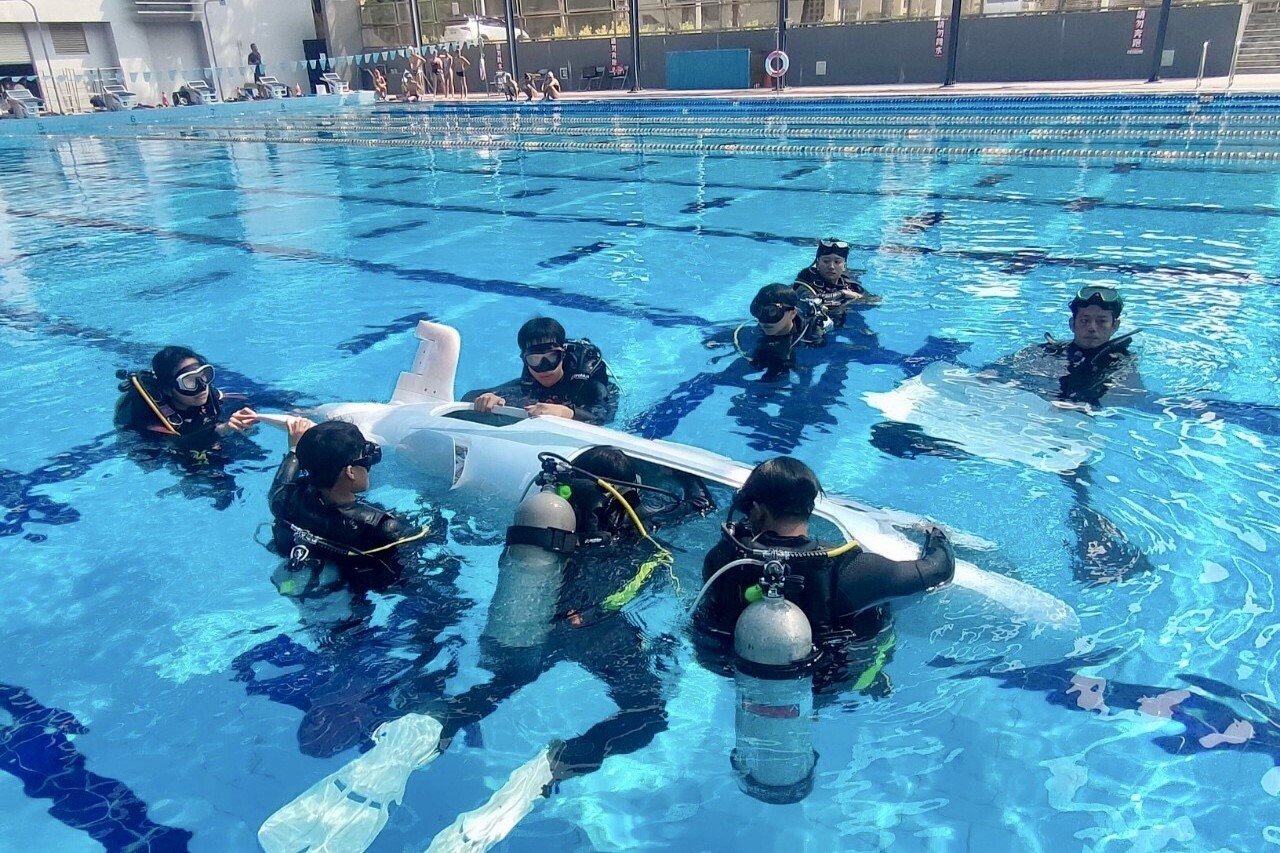
The "Deep Sea Voyager" team at NCKU has completed underwater tests for the "Pegasus" submarine they built. The team is now gearing up and preparing to compete in the European Championship in June.
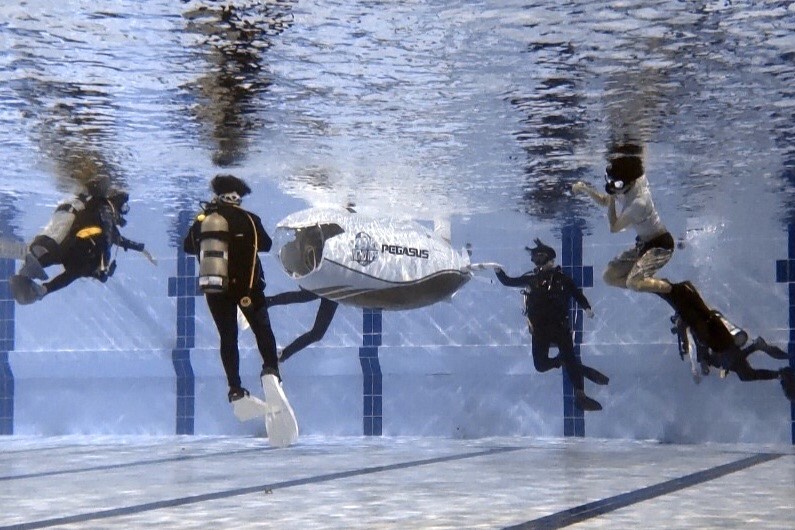
The NCKU human-powered submarine team conducts underwater tests at the NCKU swimming pool.
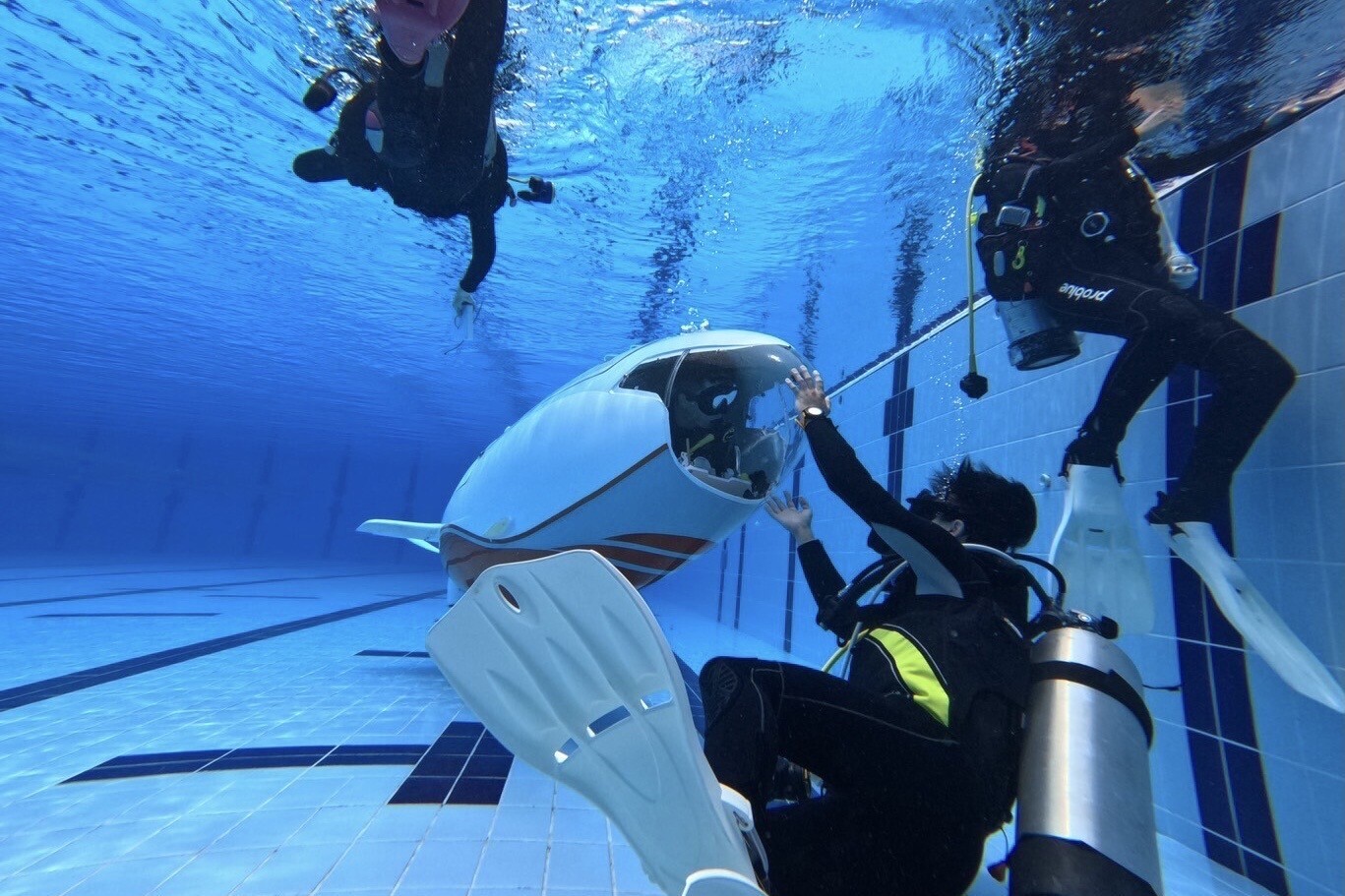
The NCKU human-powered submarine team conducts underwater tests at the NCKU swimming pool.

